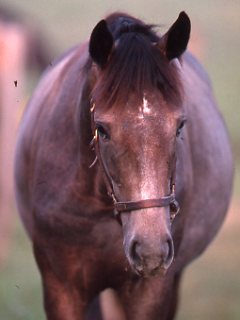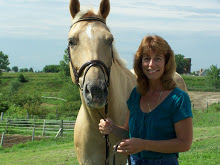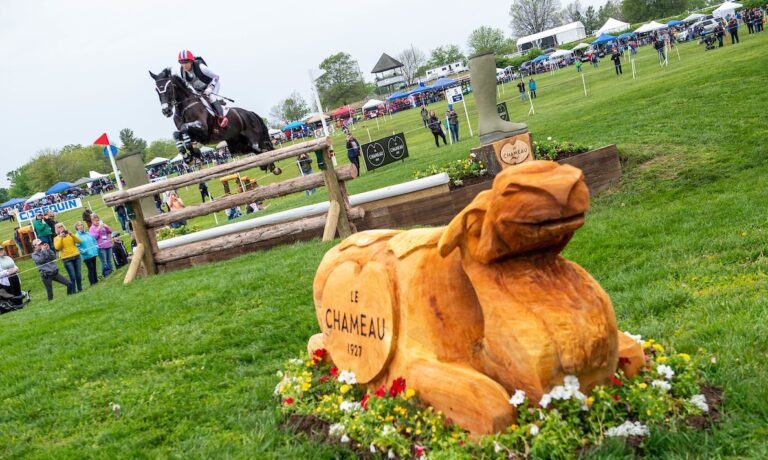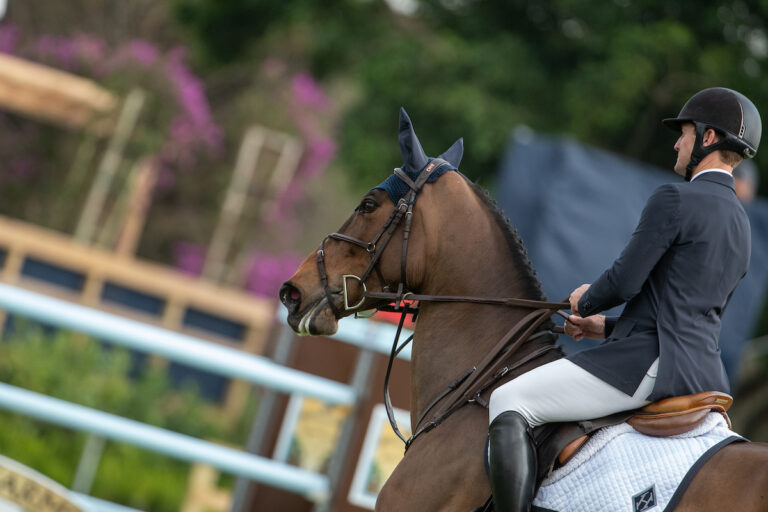As our horses get older, we often encounter difficult situations associated with the aging process. In this column, we’ll explore respiratory conditions, body weight concerns, optimal haircoat and skin condition, chronic lameness, and how we may be able to address some of these issues with nutrition.

Respiratory Problems Some older horses may have respiratory difficulties such as heaves (recurrent airway obstruction or RAO) or inflammatory airway disease (IAD). If your veterinarian has diagnosed a respiratory condition in your older horse, feeding and environment changes to reduce dust and allergens will be helpful. Feeding a complete feed such as Purina® Equine Senior® horse feed or Omolene #400® horse feed allows you to decrease or eliminate hay in an attempt to reduce the amount of dust and pollens the horse may inhale.
Suggestions to manage horses with respiratory conditions: Strictly follow your veterinarian’s instructions with regard to housing/barn access • Avoid excessive exercise. • Keep pasture mowed if horse is allergic to outdoor pollens. • Provide adequate ventilation in stalls and barns. • Do not use dusty bedding in stalls or run-in sheds. • Consult your veterinarian to determine if anti-inflammatory medications or other medical interventions are indicated.
Body Weight and Condition As horses age, their metabolism is altered. They usually fall into one of two categories: • Easy Keepers – Reduced metabolism and activity result in excessive weight gain that can be hazardous to the horse’s health. • Hard Keepers – Loss of body weight, condition, and muscle mass caused by reduced digestive efficiency and medical issues affecting metabolic rates.
It is more common to see older horses that are underweight than overweight. As previously discussed, senior horses tend to have problems with poor dental condition, along with decreased digestive efficiency. In these situations, Equine Senior® horse feed fed to replace most or all of the forage in the diet can help.
If the older horse is too fat, aim to reduce its weight to maintain a body condition score of about five. As long as the horse is able to utilize good quality hay, a good option for taking weight off is to feed hay and Purina® Enrich 32® horse feed, or a moderate calorie feed such as Equine Senior® Active Healthy Edge® horse feed. If the horse cannot adequately chew hay, it may be beneficial to reduce the amount of Equine Senior® horse feed fed, or possibly feed Equine Adult® horse feed, which is lower in calories than Equine Senior® horse feed.
Obese senior horses may suffer from Equine Metabolic Syndrome (sometimes improperly referred to as hypothyroidism or peripheral Cushing’s disease). These horses tend to store excess fat, especially along the crest of the neck, over the shoulders, on the rump, and in the sheath (geldings), and often exhibit chronic laminitis. Horses affected with Equine Metabolic Syndrome may also exhibit insulin resistance, in which blood glucose (sugar) is not adequately removed from the blood via the hormone insulin. At this time, Equine Metabolic Syndrome is not completely understood, but it is believed by researchers that obesity, as well as a genetic susceptibility, are important predisposing conditions. If Equine Metabolic Syndrome has been diagnosed, it may be helpful to reduce the amount of starch and sugars in the horse’s diet to help decrease the amount of blood glucose. Equine Senior® horse feed is formulated to contain reduced levels of starch and sugars, and has been fed successfully to many horses with this condition. Purina® WellSolve L/S® horse feed is also an appropriate option for insulin resistant older horses. Additionally, it is important to consider the hay and or pasture fed in these situations, since grasses can contain high levels of soluble carbohydrates (starches and sugars).
Haircoat and Skin Horses of all ages may suffer from poor haircoat and skin condition due to poor nutrition, but aging horses may be especially susceptible. Good grooming and proper nutrition can go a long way toward addressing these conditions.
An older horse with a long haircoat that sheds late in the year, or incompletely, may be suffering from Pituitary Pars Intermedia Disease (PPID), commonly referred to as Cushing’s disease or syndrome. PPID is caused by a tumor in the pituitary gland in the horse’s brain. Symptoms include the long haircoat, loss of muscle mass, and excessive drinking and urination. If you feel that your horse is exhibiting these symptoms, consult your veterinarian. Horses with PPID may also exhibit insulin resistance and can benefit from diets lower in starch and sugars and higher in fat and fiber. Equine Senior® horse feed has been fed very successfully to horses with PPID, and was designed to help manage the condition. However, veterinary care is essential in proper care of horses suffering from PPID.
Chronic Lameness There are many causes of lameness in aging horses, such as chronic laminitis (founder), arthritis or stiffness from weakened bones due to demineralization. Veterinary care is important in diagnosing the cause of lameness and alleviating pain.
Suggestions to manage older horses with chronic lameness: • Avoid obesity and heavy loads because extra weight burdens aging joints, tendons and ligaments. Overweight horses may also be prone to laminitis. • Have a reliable farrier provide routine hoof care every 6-8 weeks. • Provide regular, moderate exercise (if approved by your veterinarian). Gradual workouts at least four times a week are recommended. Avoid abrupt changes in exercise duration or intensity. Ride or walk on softer surfaces such as grass or light, sandy soil if lameness is a problem.
As far as nutrition, the objective is to provide a nutritionally balanced diet with more calories from fat and fiber (as compared to calories from starch/sugars) along with adequate high-quality protein and an appropriate vitamin and mineral balance to meet the aging horse’s needs. Some horses may also benefit from a high quality oral joint supplement, such as Purina® FreedomFlex™Joint Health Product, added to the diet.
In summary, providing a high quality, nutritionally balanced diet to meet the special needs of the aging horse, such as Purina® Equine Senior® horse feed, Equine Senior® Active Healthy Edge® horse feed or Purina® WellSolve L/S® horse feed in coordination with an overall health and management program as recommended by your veterinarian, will help ensure that your horse will live comfortably in good health for as long as possible.
Katie Young, Ph.D.

Technical Equine Nutritionistwith Purina Animal Nutrition
Dr. Katie Young is an equine nutritionist with Purina Animal Nutrition. Dr. Young has worked with Purina for more than 11 years, beginning as a consultant, and now in her current role as a Technical Equine Nutritionist. Her responsibilities include providing technical support for the Purina sales force, certified expert dealers and customers, developing and maintaining horse feed formulas and standards, as well as ingredient and production standards.
Dr. Young has almost 40 years of experience in the horse industry. She started riding as a child in southwest Missouri, first as a barrel racer, and later moving into hunter-jumper. After moving to Texas, Dr. Young continued participating in hunter-jumper shows, as well as dressage and combined training competitions, and played competitive polocrosse. Currently, she rides and competes in dressage and combined training with two of her six horses. Dr. Young has worked as a trainer and riding instructor for more than 30 years, and continues do so in the Kansas City area.
Dr. Young earned a bachelor’s degree from Missouri State University and a doctorate in Equine Nutrition and Exercise Physiology from Texas A&M University.










